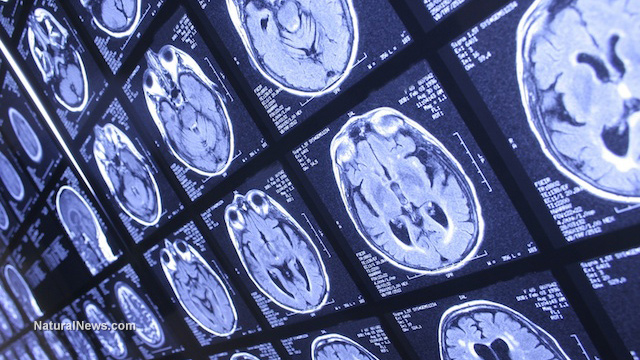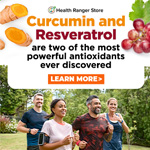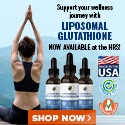Healing the brain - Tips and strategies revealed
Thursday, April 07, 2016 by: Jonathan Landsman
Tags: brain health, Paul Nussbaum, holistic medicine

(NaturalNews) When was the last time you gave your brain a good workout? In reality, most people never think about their brain when they think about exercise and a healthy lifestyle. But it's a mistake to take brain health for granted, according to psychologist Paul Nussbaum, Ph.D.
Discover strategies for a strong, healthy brain. On the next NaturalNews Talk Hour, Jonathan Landsman and Paul Nussbaum, Ph.D. will explore the latest news about brain health and reveal several surprising strategies to improve cognitive function. Join us for a remarkable show - filled with surprising insight into the greatest threats to brain health and practical advice on how to help heal the brain from the impacts of stress, anxiety, memory loss and other ills.
To hear this FREE show – visit http://www.naturalhealth365.com/free-shows and enter your email address for show details.
Lifelong brain health: Strategies for avoiding memory loss
Nearly one in every three people over the age of 70 suffer some degree of memory loss. What may surprise you, however, is that an estimated 14 percent of men and women between the ages of 18 and 39 also complain of poor memory. What is causing this growing epidemic of memory impairment? Simply put, it's today's destructive lifestyle habits - which include the consumption of highly-toxic foods, inactivity and the overuse of wireless technology. (to name a few) But that doesn't mean you should give up on protecting your mind.According to Dr. Nussbaum, "...people now are aging on their own terms, exerting more control over their health and wellbeing. Brain health is a particularly important part of this goal because the brain is the epicenter for nearly all of the human body's functions."
This is an important point: The implications for mind-centered or empowered health are enormous, and you can learn to use your brain to shape your body's health and functioning for a lifetime.
Discover how anyone, at any age, has the opportunity and ability to reverse memory loss. Join us for the next NaturalNews Talk Hour with Jonathan Landsman and Paul Nussbaum, Ph.D., a board-certified geropsychologist and clinical psychologist. Find out how lifestyle choices affect brain health plus the 5 lifestyle components that provide the foundation for a proactive, lifelong approach to brain health. (this will be time well spent)
To hear this FREE show – visit http://www.naturalhealth365.com/free-shows and enter your email address for show details.
5 components to lifelong brain health
1. Physical activity. Movement is important. Sedentary behavior is not only bad for your heart and waistline, but it's bad for your brain as well.2. Mental stimulation. The brain reacts most favorably to novel, complex stimuli. Engage in the arts, drive a new route to a familiar destination, travel to exotic places or learn a new language.
3. Spirituality. The human brain seeks balance and inner peace. Learn to meditate, engage in daily prayer, practice yoga regularly and practice progressive muscle relaxation.
4. Socialization. Isolation, particularly as you get older, is bad for the brain. As you age, continue to develop a robust network of friends, allow family tensions to heal, engage in social and recreational activities, and converse with new people.
5. Nutrition. Proper fats can help with energy, cognition and motor skills. A proper diet will reduce overall inflammation, critical to brain and body health.
The good news is that you can heal your brain and get on a path for lifelong brain health. With knowledge and a few easy-to-follow strategies, you can play a proactive role in your brain health. Even if there are factors currently affecting your brain's wellness and function, whether stress, head trauma or disease, you can take practical steps toward healing your brain for a lifetime of better cognitive function.
This program (details below) will give you a profound appreciation for neuroscience and pave the way toward better brain health. If you're concerned at all about dementia, a head trauma or any neuropsychiatric disorder, you will find this show extremely valuable.
This week's guest: Paul Nussbaum, Ph.D., Geropsychologist and Clinical Psychologist
Discover how lifestyle affects the brain and the best way to improve cognitive function naturally - Sun. April 10
Paul Nussbaum, Ph.D. is board-certified in clinical psychology and geropsychology, with a specialization in neuropsychology. He is a Fellow of the National Academy of Neuropsychology and American Academy of Clinical Psychology. He is an adjunct professor in neurological surgery at the University of Pittsburgh School of Medicine.
He is the founder and president of Brain Health Center - which is dedicated to a holistic program for overall brain health for all ages. Dr. Nussbaum is an international leader in brain health and lifestyle, and has 25 years of experience in the care of adults suffering dementia, head injury, and many neuropsychiatric disorders. An expert in neuroanatomy and human behavior, he has authored many publications within the scientific community. He also serves on the editorial boards for several scientific and clinical journals.
To hear this FREE show – visit http://www.naturalhealth365.com/free-shows and enter your email address for show details.
Brain health at FETCH.news
Get independent news alerts on natural cures, food lab tests, cannabis medicine, science, robotics, drones, privacy and more.
Take Action: Support Natural News by linking to this article from your website
Permalink to this article:
Embed article link: (copy HTML code below):
Reprinting this article:
Non-commercial use OK, cite NaturalNews.com with clickable link.
Follow Natural News on Facebook, Twitter, Google Plus, and Pinterest
- Newly released JFK files reveal Pentagon's role in creating Lyme disease and covid in the same lab
- Trump's greatest betrayal so far: Accelerating Middle East wars, silencing dissent, and serving Zionist masters
- The hidden dangers in your kitchen: How cooking methods impact diabetes, cancer and aging
- STARDUST, a secretive Israeli-US startup, plans risky solar geoengineering experiment to BLOCK OUT THE SUN
- DEADLY DECEPTION: How COVID vaccines increased mortality rates and why authorities hid the truth
- Arkansas embraces medical freedom with landmark ivermectin law
- CDC finally halts $11 billion COVID funding scam as health officials admit the ‘pandemic’ was a fraud
- Lab leak confirmed? Boris Johnson's stunning reversal on COVID origins sparks global debate
- Home gardening for preppers: A beginner's guide to growing your own food
- Unraveling the paradox: Why intelligent individuals fall prey to everyday blunders
- GAIN-OF-FUNCTION CAT-BIRD-FLU now on the rise as nearly a dozen cats in Colorado "test positive" for Bird Flu due to contaminated cat food
- YouTube’s double standard: CEO defends censorship while claiming free speech champion status
- “Feel G.O.O.D. Gut Health Program” on BrightU: Why elimination diet is good for you
- Cartels shift tactics: Kidnappings and organ trafficking surge as border crossings plummet under Trump policies
- Why you should think twice before buying mainstream toothpaste formulas
- “Rent-a-womb” scandal: How China is exploiting U.S. birthright citizenship for long-term espionage
- Was JFK's assassination orchestrated by a CIA double agent? New evidence points to James Angleton as the “architect”
- Record honeybee deaths devastate U.S. agriculture, pesticides under scrutiny
- Newly released JFK files reveal Pentagon's role in creating Lyme disease and covid in the same lab
- Elon Musk: Aliens could be here on Earth RIGHT NOW
- Reclaim your health: How midlife exercise reverses years of inactivity
- Trump reverses course on Gaza plan, says “nobody is expelling Palestinians”
- EPA advisor admits the agency is funneling billions to climate groups ahead of Trump’s return to White House
- Big Pharma's $8 Billion bribery scheme exposed: how doctors are pushed to prescribe junk science, not heal
- Space war brewing? Russia threatens to destroy Starlink satellites
- A lack of integrity in Academia: Harvard professor found GUILTY of fraudulent research to promote CRT theory
- Survival 101: Effective EMF blocking techniques
- Rep. Nancy Mace introduces bill to ban biological males from female facilities on federal property
- Mike Adams Sermon 66: God will DESTROY ISRAEL for its wickedness
- Pilots report mysterious lights 'moving at extreme speeds' across Oregon skies
- 5 Simple steps to boost your brainpower: How to strengthen executive function in a distracted world
- Historian warns Israel may be entering an “IRREMEDIABLE DECLINE”
- Florida takes a stand: DeSantis proposes permanent ban on mRNA vaccine mandates
- RFK Jr.'s SSRI antidepressant investigation sparks liberal meltdown, exposes Big Pharma's dangerous game
- OpenAI whistleblower who dissented against how the company trained ChatGPT found dead
- Sugarcane extract superior to cholesterol-lowering drugs?
- EPA advisor admits the agency is funneling billions to climate groups ahead of Trump’s return to White House
- The Health Ranger releases “Vaccine Zombie” song and music video, using AI-animated zombies for the music video
- California's social media censorship law struck down: A victory for free speech or a threat to online safety?
- Dr. Mike Yeadon releases 15-minute testimony - WATCH - about genocidal intent of COVID “vaccines”
- The pandemic as a tool for INDOCTRINATION: Understanding “The Indoctrinated Brain” by Dr. Michael Nehls
- Mike Adams releases country western hit single: Goin’ Back in Time is Comin’ Home
- Mike Adams releases music poetry sensation: A Child of God
- RFK Jr. clears key hurdle: Sen. Susan Collins backs controversial HHS nominee, signaling a new era for health policy
- Florida takes a stand: DeSantis proposes permanent ban on mRNA vaccine mandates
- Unpacking the Lies That We’ve Been Fed – new song and music video released by Mike Adams, the Health Ranger
- Mike Adams releases new song and music video: Nothing More Disgusting Than a Globalist
- Congratulations to the FULLY UNVACCINATED as you resisted the COVID-19 PROPAGANDA MACHINE fueled by over $100 BILLION
- “Why we influenced the 2020 elections”: Facebook files reveal the coordinated effort to bury the Hunter Biden laptop story
- Michigan sheriff announces criminal investigation into 2020 election crimes, Dominion Voting Systems
- Israeli soldiers accused of even more torture and abuse in the West Bank
- Migrants are taking advantage of recent hurricanes to scam residents and loot their homes
- House Intelligence Committee calls for the ARREST and PROSECUTION of Dr. Anthony Fauci
- Peter Rost exposes Big Pharma corruption in his book “The Whistleblower: Confessions of a Healthcare Hitman”
- Red Cross issues warning to stop blood plasma donations from vaccinated people
- Scientists confirm: GENIUS brain function can be spontaneously unleashed in humans without any apparent cause
- EPA advisor admits the agency is funneling billions to climate groups ahead of Trump’s return to White House
- HYSSOP: What research reveals about the health benefits of this ancient holy herb
- Two containers with completed ballots fall out of truck in Florida
- Fully vaccinated about to see “tsunami” of illness and death, warns virologist
- Global leaders unite to clamp down on “misinformation” with UN-backed Cascais Declaration
- BREAKING: 2025 NDAA authorizes mandatory military draft of WOMEN across America… as Pentagon pursues global NUCLEAR war with both Russia and China at the same time
- Michael Yon warns of a ZIONIST TAKEOVER in Trump’s second administration
- BOMBSHELL: DNA testing kits are a SCAM to develop ethnic-specific bioweapons
- Ozempic and Wegovy weight loss drugs are injectable LIZARD VENOM PEPTIDES that may unleash a devastating wave of organ failure… side effects align with symptoms of SNAKE BITES
- Israeli soldiers accused of even more torture and abuse in the West Bank
- These 13 countries just signed an agreement to engineer a global FAMINE by destroying food supply
- NASA admits that climate change occurs because of changes in Earth’s solar orbit, and NOT because of SUVs and fossil fuels
- RFK Jr. clears key hurdle: Sen. Susan Collins backs controversial HHS nominee, signaling a new era for health policy
- Sermon 30: How Jesus reveals Caesar’s FAKE CURRENCY and FALSE AUTHORITY
- Coriander seeds: Ancient medicine backed by modern science
- Arizona officials claim Maricopa County needs 10-13 days to tabulate results of the election
Science News & Studies
Medicine News and Information
Food News & Studies
Health News & Studies
Herbs News & Information
Pollution News & Studies
Cancer News & Studies
Climate News & Studies
Survival News & Information
Gear News & Information
News covering technology, stocks, hackers, and more



"Big Tech and mainstream media are constantly trying to silence the independent voices that dare to bring you the truth about toxic food ingredients, dangerous medications and the failed, fraudulent science of the profit-driven medical establishment.
Email is one of the best ways to make sure you stay informed, without the censorship of the tech giants (Google, Apple, Facebook, Twitter, YouTube, etc.). Stay informed and you'll even likely learn information that may help save your own life."
–The Health Ranger, Mike Adams












































